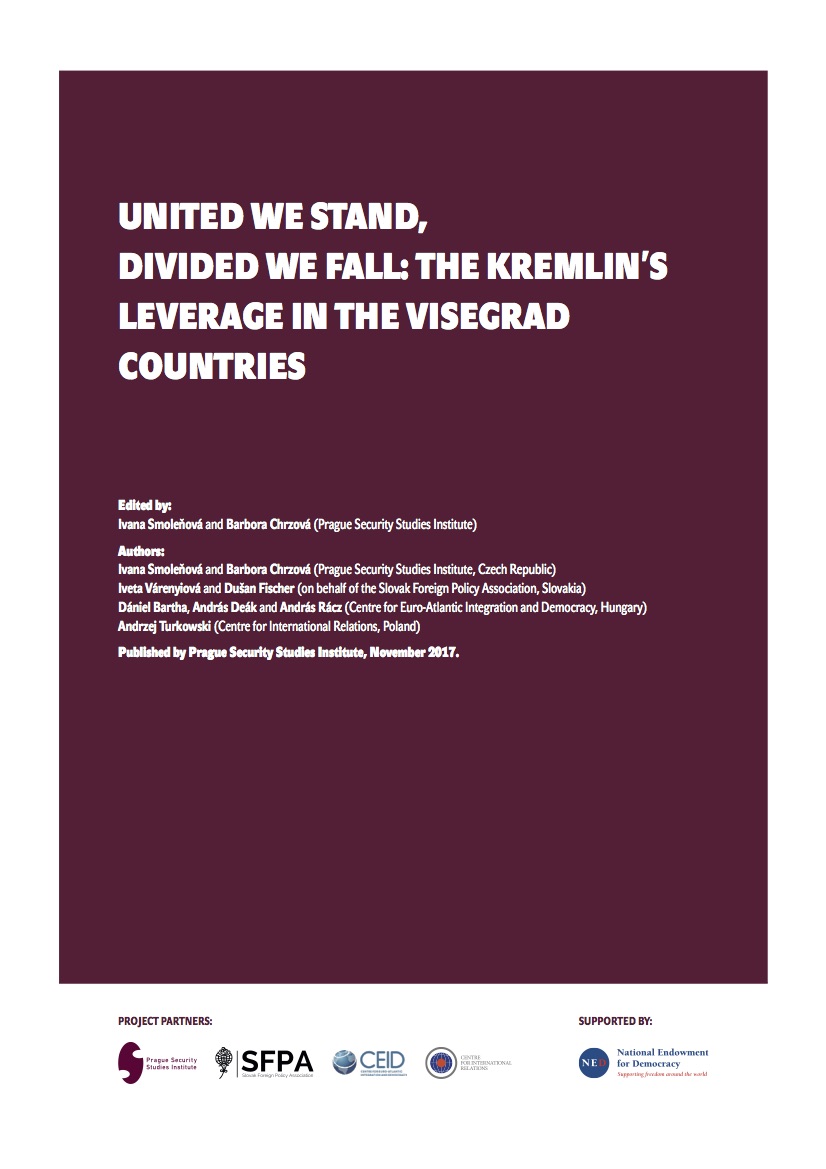
05 Dec United We Stand, Divided We Fall: The Kremlin’s Leverage in the Visegrad Countries
With the beginning of the millennium, the Visegrad countries – the Czech Republic, Poland, Hungary and Slovakia – began to improve their relations with Russia. Nevertheless, the Russian annexation of Crimea and its involvement in the war in Eastern Ukraine represented a major shift in relations with Russia for the Visegrad countries. The crisis sparked a rise in tensions between the West and Russia affecting mutual economic ties and cooperation. Despite the continued support for the prolonging of sanctions, which were ultimately designed to alter Russia’s behavior in Ukraine, the clear asymmetry between the official diplomatic positions and the political rhetoric directed at domestic audiences is often visible.Several politicians and business representatives from the Visegrad countries have voiced the effectiveness of sanctions, the overarching argument being that Russia represents an indispensable market for their countries. Given the continuing popularity of this rhetoric undermining the official diplomacy of the Visegrad countries and causing confusion among their European partners, it is important to ask: to what extent are such claims relevant? In what ways did the conflict in Ukraine and the severe cool-down of relations with Russia influence mutual economic cooperation and economic performance of individual Visegrad countries? This study seeks to answer these questions by shedding light on the development of economic relations between individual Visegrad countries and Russia before the conflict in Ukraine.
The final study can be found here .
You can find here an overview of the publication in Hungarian .
In cooperation with:
Slovak Foreign Policy Association
The Center for Polish-Russian Dialogue and Understanding
The Center for Euro-Atlantic Integration and Democracy
Supported by:
International Visegrad Fund

